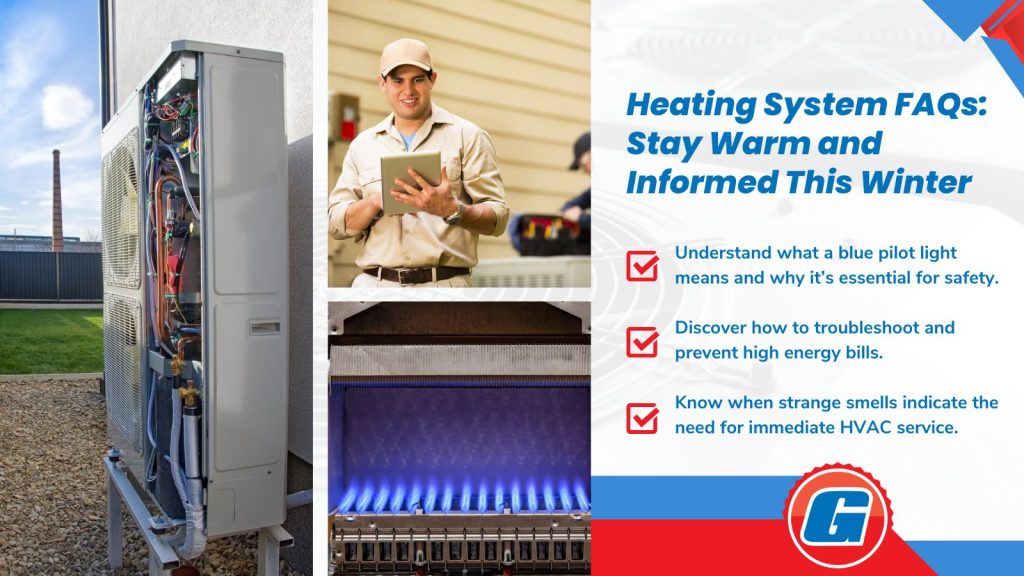We get a variety of different questions from our customers when it comes to heating – especially at this time of the year as we head into winter. You can keep reading to get answers to some of the top heating questions our team gets asked.
If you’re still wondering about aspects of heating your home that aren’t covered here, just give us a call and we are happy to help. HVAC care is in our blood as a team of 3rd generation technicians! Whether you have concerns about how your heating system is operating or are thinking about upgrading, no heating system need is too big or too small for our team to help with.

How Long Is a Heating System’s Lifespan?
You can expect the average heating system to last around 10-15 years. If you skip maintenance steps of your own as well as professional maintenance, your heating system may need to be replaced closer to the 10-year mark. This is because the manufacturer’s warranty is usually up after 10 years.
Without proper care, your furnace may begin to break down under the strain of working harder. It may not be worth putting thousands of dollars into an already older heating system when you can invest in a new model. However, taking care of your heating system will get 10-15 years or longer out of your system before it needs to be replaced.
Why Does My Heating System Smell Bad?
It can smell bad for reasons such as electrical issues, overheating, gas leaks, and more. If you have a gas furnace, leaks are a particular concern. Keep in mind that not all natural gas has an odor added by the service provider. While a rotten egg smell can point to a gas leak, many times gas leaks don’t have an odor at all. It’s important to have carbon monoxide detectors in place as a precaution instead of relying on odor alone.
If it smells like your heating system is burning up, that’s a major red flag. You should turn the system off completely until our team can take a look at it. Even when creating high levels of heat for your home, your heater should never smell like something is burning.
Why Are My Heating Costs Expensive?
If you’re starting to receive energy bills that are creeping up as you crank up the thermostat to heat your home, it’s natural to feel concerned. You have a budget to stick to and spending a lot more on your energy costs may not be part of the plan. First, consider whether or not you have made changes to how your thermostat is set for heating.
If you haven’t made significant changes, you shouldn’t be seeing significantly higher energy bills. Compare your usage to a similar timeframe from last year to see if your heating system is consuming more energy. If it is, you may need an extra service appointment to get down to the root of the problem.
Issues with how your heating system is operating can add strain that causes your unit to consume more energy than normal for heating cycles. A simple tune-up can help to boost efficiency and save you money on your future energy bills.
What Color Should the Pilot Light Be?
If you have a gas furnace, the pilot light should always burn bright blue. If you notice that the pilot light is fading or even turning another color like yellow or orange, give our team a call. Sometimes airflow issues can be the cause of a discolored pilot light.
But other times, more serious issues are present and need to be addressed. If you suspect that airflow is the culprit, try changing out your air filter or checking for blockages. You can do this by holding your hand up to air vents around your home to make sure you feel a steady stream of hot air coming out when your heating system is on.
At Gideon Heating & Air Conditioning, we like to say that our work isn’t just good—it’s Gideon Guaranteed! Contact us today to schedule HVAC services.

